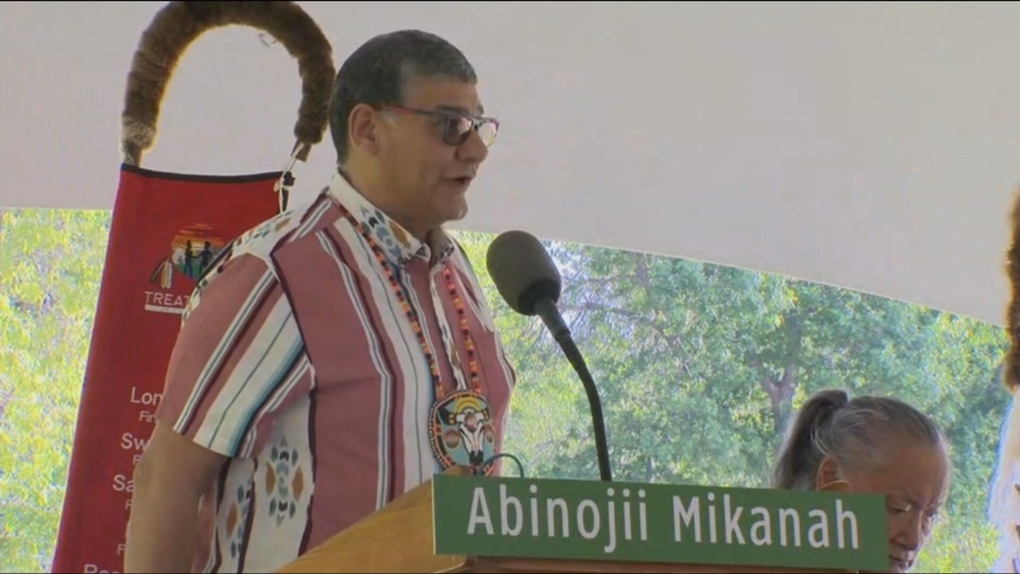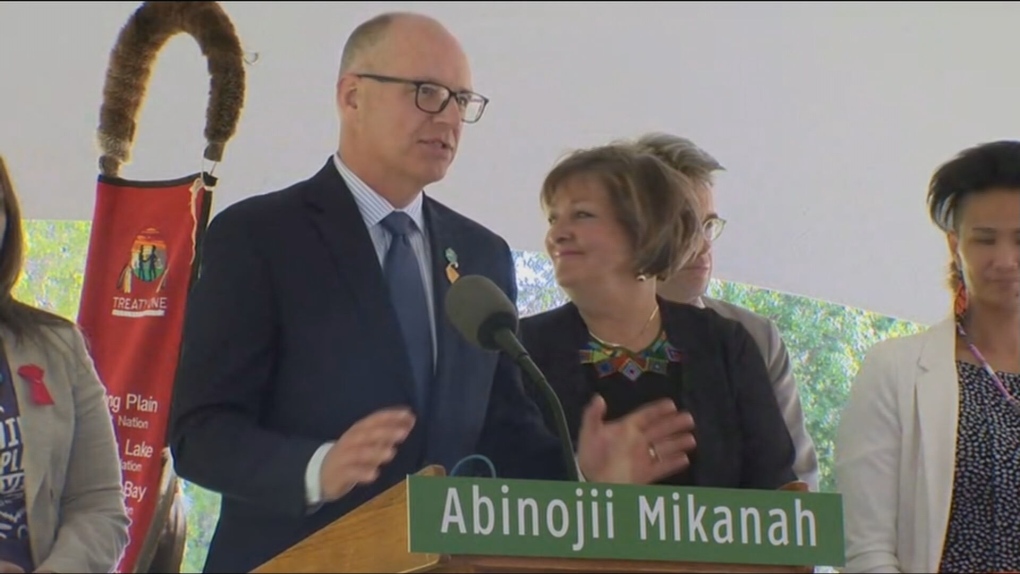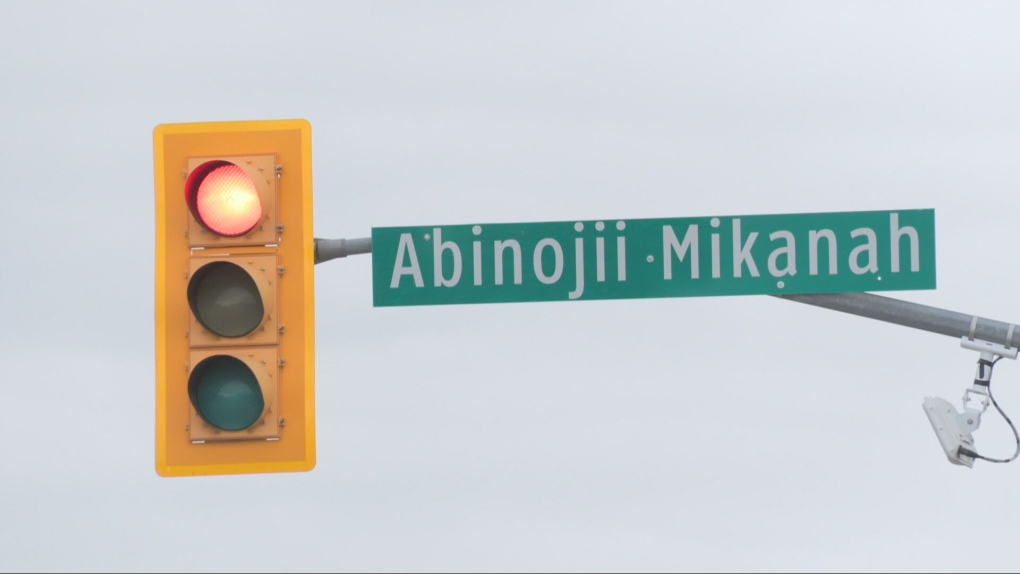‘More than a symbolic gesture’: Official renaming ceremony held for Abinojii Mikanah
For decades, a trio of roadways in Winnipeg bore the name of a bishop who led the campaign for residential schools.
Friday, new names for a new chapter.
On National Indigenous Peoples Day, elders, knowledge keepers, and city and provincial officials gathered at a renaming ceremony for Abinojii Mikanah.
Among dancing and fiddling and prayer, reflection on the tough road travelled to arrive here and the hopes for a smoother one ahead.
“Abinojii Mikanah is an opportunity for all of our children to walk over that bridge. We are very humbled and thankful for the recognition and acceptance,” Frank Beaulieu, an Anishinaabe Knowledge Keeper from Sandy Bay First Nation, said at the ceremony Friday.
 Anishinaabe Knowledge Keeper Frank Beaulieu addresses attendees at the June 21, 2024 renaming ceremony for Abinojii Mikanah. (Zachary Kitchen/CTV News Winnipeg)
Anishinaabe Knowledge Keeper Frank Beaulieu addresses attendees at the June 21, 2024 renaming ceremony for Abinojii Mikanah. (Zachary Kitchen/CTV News Winnipeg)
The changes come after city council voted in April to approve a bylaw change that formally renamed the three streets that once paid tribute to Bishop Vital Grandin.
What were once known as Bishop Grandin Boulevard, Bishop Grandin Trail, and Grandin Street are now called Abinojii Mikanah, Awasisak Mēskanôw, and Taapweewin Way, respectively.
“The renaming of these streets is more than a symbolic gesture – it is a step, an important step for our entire community, our city, our province, our nation toward reconciliation, acknowledging past injustices and honouring the resilience and the strength of Indigenous communities,” said Mayor Scott Gillingham.
 Mayor Scott Gillingham speaks at a June 21, 2024 ceremony marking the renaming of Abinojii Mikanah. (Zachary Kitchen/CTV News Winnipeg)
Mayor Scott Gillingham speaks at a June 21, 2024 ceremony marking the renaming of Abinojii Mikanah. (Zachary Kitchen/CTV News Winnipeg)
What’s in a name?
While new signs have been up for weeks, Friday’s ceremony made the name changes official.
The new names were chosen by an Indigenous naming circle made up of elders, residential school survivors, knowledge keepers, and youth.
“The goal was to select names that honour Indigenous experience and Indigenous culture,” Gillingham said.
 New signage on Abinojii Mikanah at St. Mary’s Road is shown on May 7, 2024. (Jamie Dowsett/CTV News Winnipeg)
New signage on Abinojii Mikanah at St. Mary’s Road is shown on May 7, 2024. (Jamie Dowsett/CTV News Winnipeg)
Abinojii Mikanah means “The Children’s Way/Road” in Anishinaabemowin/Ojibwe, and is meant to honour the experiences of Indigenous residential school and day school survivors, and those who didn’t make it home.
Awasisak Mēskanôw means children and journey, and represent the “journey” that was discussed during the consultation process.
Taapweewin means truth in Michif, and is an effort to include each of the seven languages outlined in the Manitoba Aboriginal Languages Recognition Act.
A legacy reconsidered
The previous roads were named for Bishop Vital Grandin, whose legacy has been reconsidered following the release of the Truth and Reconciliation Commission’s final report.
In addition to its 94 calls to action, it included a detailed history of the residential school system in Canada, and identified the bishop as one of its architects and champions.
He appealed to the federal government to increase grants to these schools and encouraged the building of industrial schools in Western Canada.
View original article here Source




